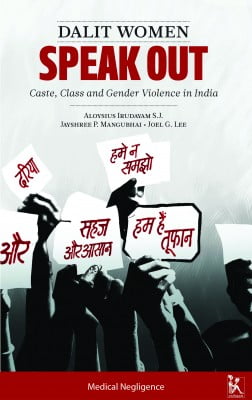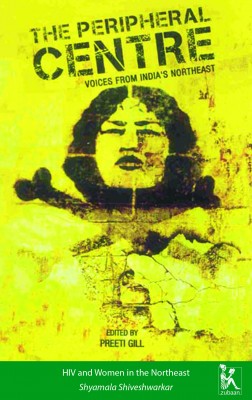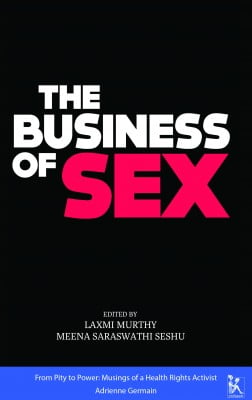No products in the cart.
Return To ShopOur e-Essays project is now LIVE!
Previously-released essays are available here, and each month a new essay is available for free with any other purchase. To be added to the mailing list, subscribe here!
Our previous sets of e-Essays focused on Indian women’s movements, sexual violence, domestic space and kinship, religion and conflict, state crimes and impunity and trauma.
The deaths of almost 300 children last month in a hospital in Gorakhpur have again brought to the forefront the apathy of the Indian establishment towards the health and well being of its citizens. Among those who bear the biggest brunt of this indifference are women, who are made especially vulnerable both within healthcare structures and society at large, which expects them to not only be caregivers to the men but, in doing so, also ignore their own well being. The essays on health we bring to you this time outline the hardships women face in both private and public healthcare systems not only due to their gender, but also because of their socioeconomic, caste and professional backgrounds. The unique vulnerabilities that women encounter when they live in an area mired in political conflict are also examined.
1. ‘Medical Negligence’ by Aloysius Irudayam S. J., Jayshree Mangubhai and Joel G Lee from Dalit Women Speak Out: Caste, Class and Gender Violence in India (2011)
This essay puts forward a study conducted across four states that brings out the challenges faced by Dalit women when availing health services in government and/or private medical institutions. These accounts are placed next to interrelated and essential elements of the right to health, highlighting different forms of medical negligence faced by these women. The authors show that both private and public health-care systems position Dalit women at the periphery for reasons of caste, class, and gender, noting that these narratives are a telling comment on the way government medical staff treats Dalit women patients in contrast to non-Dalit patients. This negligence has had consequences on other spheres of these women’s lives: economic, psychological, and personal (their identities as Dalits and women), and making them more vulnerable to discrimination. 16 pp. Read more.
Aloysius Irudayam S. J. is currently the Program Director for Advocacy Research and Human Rights Education at the Institute of Development Education, Action and Studies (IDEAS), located in Madurai, Tamil Nadu. Jayshree Mangubhai is a Senior Human Rights Adviser with the Pacific Community (SPC), a regional organisation that provides technical and scientific advice to Pacific Island governments, based in Fiji. Joel G Lee is an Assistant Professor of Anthropology at Williams College, Massachusetts, USA. He teaches and conducts research on caste and religion in South Asia. ____________________________________________________________________________________________________
2. ‘HIV and Women in the Northeast’ by Shyamala Shiveshwarkar from The Peripheral Centre: Voices from India’s Northeast (2010)
‘HIV and Women in the Northeast’ explores the feminization of the HIV/AIDS epidemic in the northeastern states of India. Shyamala Shiveshwarkar establishes and elaborates on the critical linkages between drugs, violence, and gender inequalities at the individual, family, and societal levels to establish women’s increasing vulnerability to HIV/AIDS. She asserts that regardless of whether they are affected or infected, women are being forced to take on a greater share of the socio-economic and psychological burden of stigma and discrimination, violence, caring for the sick and providing for their families. The author takes care to outline the intersection of these vulnerabilities with the political insurgency in these states and explores the problems with existing treatment and care of HIV/AIDS—focusing primarily on its inadequacy and male-centricism, which severely limits women’s access to prevention and care. 11pp. Read more.
Shyamala Shiveshwarkar was with The Hindustan Times, New Delhi, from 1972 to 2000. During this period she was attached to the Overseas Hindustan Times and subsequently with magazine section of the paper for fifteen years. She has since worked with the Centre for Advocacy & Research, New Delhi, as a Documentation Consultant. ___________________________________________________________________________________________________________
3. ‘From Pity to Power: Musings of a Health Rights Activist‘ by Adrienne Germain from The Business of Sex (2013)
In this essay, Adrienne Germain details how action around sex workers is often centred on “rehabilitation” and “relocation” as though all women in sex work had been “forced” into it, a position that deprives these women of their agency. She explores debates between feminists over whether sex work is or can be an autonomous choice by women, or is always and only a form of violence and exploitation of women. Describing her work with several NGOs in India, Germain discusses the effects of these attitudes on various healthcare programmes and on AIDS prevention interventions that see sex workers only as vectors of diseases, not as agents of change in themselves. Deconstructing her own positionality, the author points out that both, feminist and sex workers’ movement are founded on the commitment to women’s autonomy especially control of their bodies, calling thus for the need to establish and implement sex workers’ labour rights. 8pp. Read more.
Adrienne Germain is President Emerita of the International Women’s Health Coalition, and worked worldwide for women’s health and human rights for 50 years. Her works have been published in several edited volumes and journals. In 2012, she received the United Nations Population Award in recognition of her work in the field. _____________________________________________________________________________________________________________
FREE IN SEPTEMBER, WITH THE PURCHASE OF ANY OTHER ESSAY:
 ‘Health and Torture’ by P Ngully from The Peripheral Centre: Voices from India’s Northeast (2010)
‘Health and Torture’ by P Ngully from The Peripheral Centre: Voices from India’s Northeast (2010)
This essay traces the detrimental effects on the health of the people of Nagaland due to excessive militarisation in the region. Ngully puts the idea of ‘health’ into perspective and examines the implications of the WHO definition, which cites not just physical, but also mental and social well-being as criteria. This is done with regard to the torture, murder, and rape that the Naga people have been subject to in the past years by the security forces, justified under the cover of the Armed Forces Special Powers Act (AFSPA). By placing the psychological trauma that the Naga people have faced within a broader context of disorders resulting from large-scale manufactured disasters, Ngully lays emphasis on the scale of tragedy in his homeland. 4pp. Read more.
P. Ngully is a practicing psychiatrist and social activist based in Kohima who has worked on the history of trauma and PTSD in Naga society. He is the Chairman of the Council of Kohima Educational Trust, and has recently also worked on HIV/AIDS sensitisation programmes with the Kripa Foundation. _______________________________________________________________________________________________________________ A note on pricing, frequency and format:
The e-Essays project is a new initiative from Zubaan, undertaken to make our near-fifteen years of feminist research more accessible to our readers and community. Ten new essays are released each month (on the 1st, 11th, and the 21st), each set curated to a theme; subscribers receive each curated set in their inbox. The essays range from just a few pages to 100-page chapters, and we’ve therefore created three pricing tiers: 50, 70 and 95 rupees. Responses to our test survey in March indicated that a majority of readers would be willing to pay up to Rs. 100, so we’ve kept even the longest essay under that amount. The vast majority of our readers also included PDFs in their preference of format, and we have accordingly standardised all our essays in PDF files.
If you’re interested to see what’s coming next, make sure you’ve joined our mailing list, and keep your eye out for the next mailer/blog post. Happy Reading!





Leave a comment
You must be logged in to post a comment.